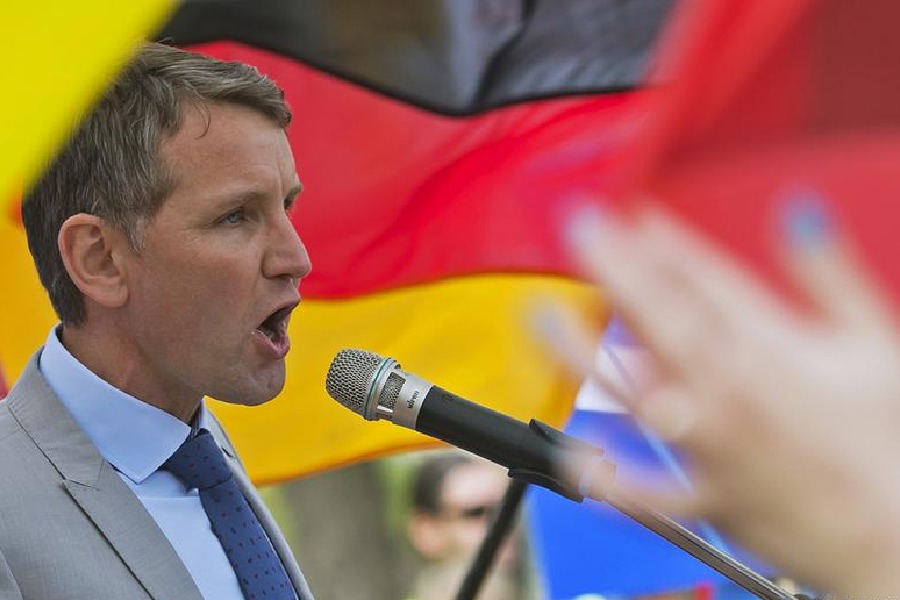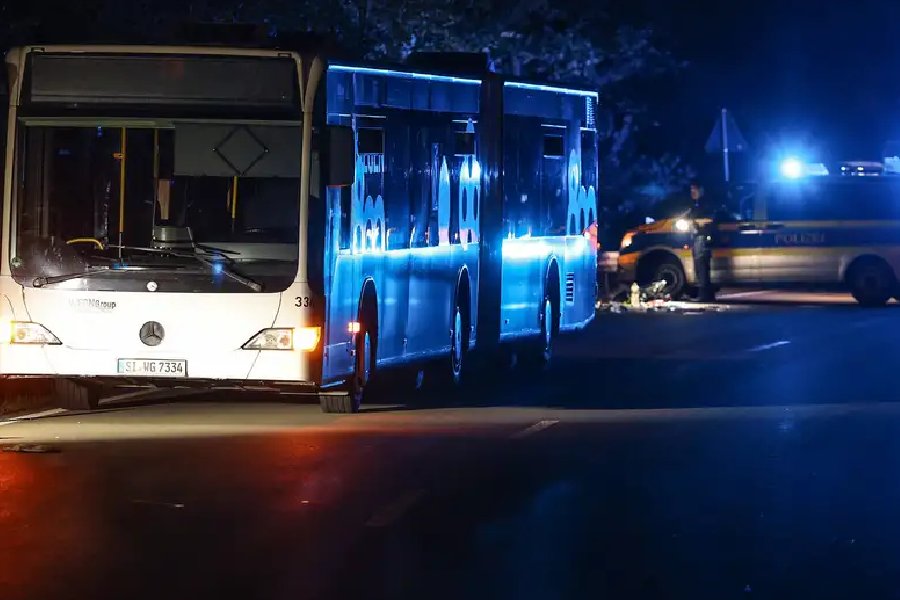The far-right AfD won the election in Thuringia, securing 32.8% of the vote, preliminary results showed after all votes were counted.
The Christian Democratic Union (CDU) came second, winning 23.6%.
The upstart, left-wing party Sahra Wagenknecht Alliance (BSW) was third with 15.8% of the vote.
Germany’s ruling coalition parties, including Chancellor Olaf Scholz's Social Democrats (SPD), the environmentalist Greens and business-focused Free Democrats (FDP), received a drubbing at the polls.
The SPD managed to make it into the state legislature with a mere 6.1% of the vote, but the Greens and the FDP failed to meet the 5% threshold.
In Saxony, the CDU emerged victorious with 31.9%, while the AfD came a close second securing 30.6% of the vote. The BSW was third with 11.8%.
The SPD and the Greens took a hit in Saxony, with the former winning just 7.3% and the latter 5.1% of the vote.
The results mean talks for government formation could be tough and protracted in both states.
German business groups express concerns over election outcome
Several business associations have expressed concern after the far-right AfD and the left-wing, anti-immigrant BSW scored huge gains in the state elections in Saxony and Thuringia.
Marcel Fratzscher, president of the German Institute for Economic Research, warned of significant economic and social consequences.
"The AfD in particular stands for an extremely neoliberal economic policy, for protectionism and isolation from Europe, for less immigration of skilled workers and less openness and diversity," he told Reuters.
Fratzscher believes the election results will lead to an exodus of firms and skilled workers from both states.
The German Economic Institute (IW) also sees the results as a bad signal.
"This cannot bode well for the economy, because it needs political predictability, institutional stability and reliable framework conditions," IW director Michael Hüther told Reuters.
Ralf Wintergerst, president of the digital association Bitkom, said the results are a "warning signal for the digital economy."
"Germany must remain a country that stands for openness to the world and innovation," he said, adding that neither AfD nor BSW represents these values.
Monika Schnitzer, Chair of the German Council of Economic Experts, warned that government formation will be difficult in Saxony and Thuringia, and that it "could take weeks or even months."
She said no political decisions could be taken without a stable democratic majority.
"But that means that companies, universities, cultural institutions and citizens have no planning security," said the economist.
"But uncertainty is toxic, especially for the economy," she noted, pointing out that "companies will delay investment plans or abandon them altogether, with negative effects on growth."
Berlin mayor: Elections in Thuringia, Saxony a 'wake-up call'
The mayor of Berlin, Kai Wegner from the center-right CDU, says that the projected results of the votes in Thuringia and Saxony should make mainstream politicians rethink their ways.
"This is a wake-up call that we must not ignore, maybe the last one we get," he told Germany's Tagesspiegel newspaper.
With state polls boosting the far-right AfD and the leftist-populist BSW, Wegner said the results "show, in a shocking manner, that many people in our country no longer feel represented by the centrist democratic parties."
He urged all democratic forces, including those in his own party, to reconsider "if the course in recent years was the right one, if the worries and fears of the citizens were taken seriously," adding that the future of democracy was at stake.












